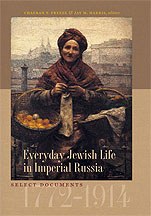---------- Forwarded message ----------
From: Jan Meisels Allen <janmallen@att.net>
To: IAJGS Leadership Forum <leadership@iajgs.org>
Cc:
Bcc
Date: Sat, 15 Dec 2018 16:29:43 -0800
Subject: [IAJGS Leadership] (UK) BBC Genome and Radio Times
The British Broadcasting Company (BBC) placed the Radio Times from the 1940s online. Additionally, the BBC Genome website had added listening to or watching historic broadcasts from 1923-2009 see: https://genome.ch.bbc.co.uk/. Here you can search for BBC programs, people, dates and Radio Times editions. There are more than 5 million program listings in Genome, remembering it reflects the attitudes and standards of when the program was first aired which may be different than those of today. There is an ongoing project to link the program listings to the relevant recording thus far only 18,000 programs have been linked. To read more about this see: https://www.bbc.com/news/in-
The BBC Archive includes a lot of World War ll materials. One is from Witnessing the Holocaust, personal accounts of persecution and genocide by the Nazis. From April 1, 1945 a reporter provides a firsthand account Buchenwald Concentration Camp To hear the interview you need to run the adobe flash that they provide. See: http://www.bbc.co.uk/archive/
There are more broadcasts from the Holocaust with links on the right side of the above archival recording.
Thank you to Peter Calver, LostCousins Newsletter for informing us of this new feature of the BBC.
Jan Meisels Allen
Chairperson, IAJGS Public Records Access Monitoring Committee




 ook makes accessible—for the first time in English—declassified archival documents from the former Soviet Union, rabbinic sources, as well as previously untranslated memoirs, illuminating everyday Jewish life as the site of interaction and negotiation among neighbors, society, and the Russian state, from the beginning of the nineteenth century to World War I. Focusing on religion, family, health, sexuality, work, and politics, these documents provide an intimate portrait of the rich diversity of Jewish life. By personalizing collective experience through individual life stories—reflecting not only the typical but also the extraordinary—these sources reveal the tensions and ruptures in a vanished society. An introductory survey of Russian Jewish history from the Polish partitions (1772–1795) to World War I, along with prefatory remarks, textual annotations, and a bibliography of suggested readings, combine to provide a new perspective on the history of the Jews of Russia.
ook makes accessible—for the first time in English—declassified archival documents from the former Soviet Union, rabbinic sources, as well as previously untranslated memoirs, illuminating everyday Jewish life as the site of interaction and negotiation among neighbors, society, and the Russian state, from the beginning of the nineteenth century to World War I. Focusing on religion, family, health, sexuality, work, and politics, these documents provide an intimate portrait of the rich diversity of Jewish life. By personalizing collective experience through individual life stories—reflecting not only the typical but also the extraordinary—these sources reveal the tensions and ruptures in a vanished society. An introductory survey of Russian Jewish history from the Polish partitions (1772–1795) to World War I, along with prefatory remarks, textual annotations, and a bibliography of suggested readings, combine to provide a new perspective on the history of the Jews of Russia.

